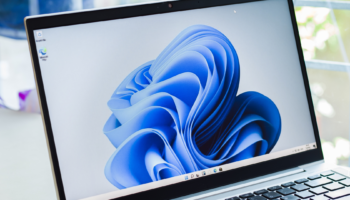Neuralink, Elon Musk’s brain interface firm, reached a key milestone this week, with Musk announcing on X (previously Twitter) that “the first human received an implant from yesterday and is recovering well.”
Driven by concerns that AI may soon overtake (or outthink) humans, Musk first presented the concept of a brain-to-computer interface, known as Neural Lace, in 2016. Imagine an implant that could overcome the limits inherent in human-computer communication. Musk said that an interface capable of reading brain impulses and delivering them directly to computer systems would vastly outperform traditional keyboard and mouse interactions.
Four years later, Musk demonstrated early clinical studies with an unwilling pig, and in 2021, the business placed the gadget in a monkey, which utilized the interface to control a game of Pong.
It was all fun and games until last week, when Musk announced a human experiment and introduced some new branding.
Neuralink’s initial product is now dubbed ‘Telepathy’, which, according to another Musk tweet, “enables control of your phone or computer, and through them almost any device, just by thinking.”
As expected, these brain implants are not suited for everyone at this time. In 2020, Musk stated that the goal is “to solve important spine and brain problems with a seamlessly implanted device.” Musk stated last week that “the first users will be those who have lost the use of their limbs.” Consider whether Stephen Hawking could communicate faster than a speed typist or auctioneer. “That is the goal.”
What is Neuralink Telepathy?
Neural link devices, such as Telepathy, are bio-safe implants made up of little disk-like devices (about the thickness of four coins placed together) with ultra-fine wires flowing out of them that connect to various areas of the brain. The filaments read neural spikes, which are then interpreted by a computer interface to determine the subject’s intents and translate them into action on a phone or desktop computer. In this first testing, Musk stated that “initial results show promising neuron spike detection,” but he did not expand on whether the patient was able to manipulate anything with his mind.
Musk did not explain the surgical implantation technique. However, in 2020, Neuralink released their Link surgery robot, which promised to implant Neuralink devices with minimal pain, blood, and, we assume, trauma. We’re not sure how it’s feasible given that the implant is located beneath the skin and skull, as well as on the brain. It’s also unclear whether Neuralink used Link to install ‘Telepathy.’
The new branding isn’t too far-fetched. While most people associate telepathy with people sending thoughts to one another, the definition is “the communication of thoughts or ideas by means other than the known senses.”
A phone in your skull
Nonetheless, Musk has a history of using hyperbole to describe Neuralink. During one early demonstration, he only half-joked, “It’s sort of like if your phone went into your brain.” He later stated, “In the future, you will be able to save and replay memories.”
With the first Neuralink Telepathy device successfully installed, Musk looks to be more cautious. There was no press conference or parade of the patient for the reporters. We only have a few tweets and a few specifics on a brain implant that Musk hopes will help humans keep up with rapidly evolving AIs.
It’s worth remembering that, for all of Musk’s bluster and occasionally offensive hyperbole, he was more accurate than he realized about where AI would be by 2024. Back in 2016, there were no ChatGPT, Google Bard, or Microsoft CoPilot. We didn’t have AI in Windows or Photoshop’s Firefly, let alone realistic AI photos and movies or deepfakes. Concerns about AIs snatching employment are increasingly real, and the prospect of humans slipping behind artificial intelligence appears less like a sci-fi fantasy and more like our future.
Are our worries making us more willing to sign up for brain implants? Musk is betting on it.






